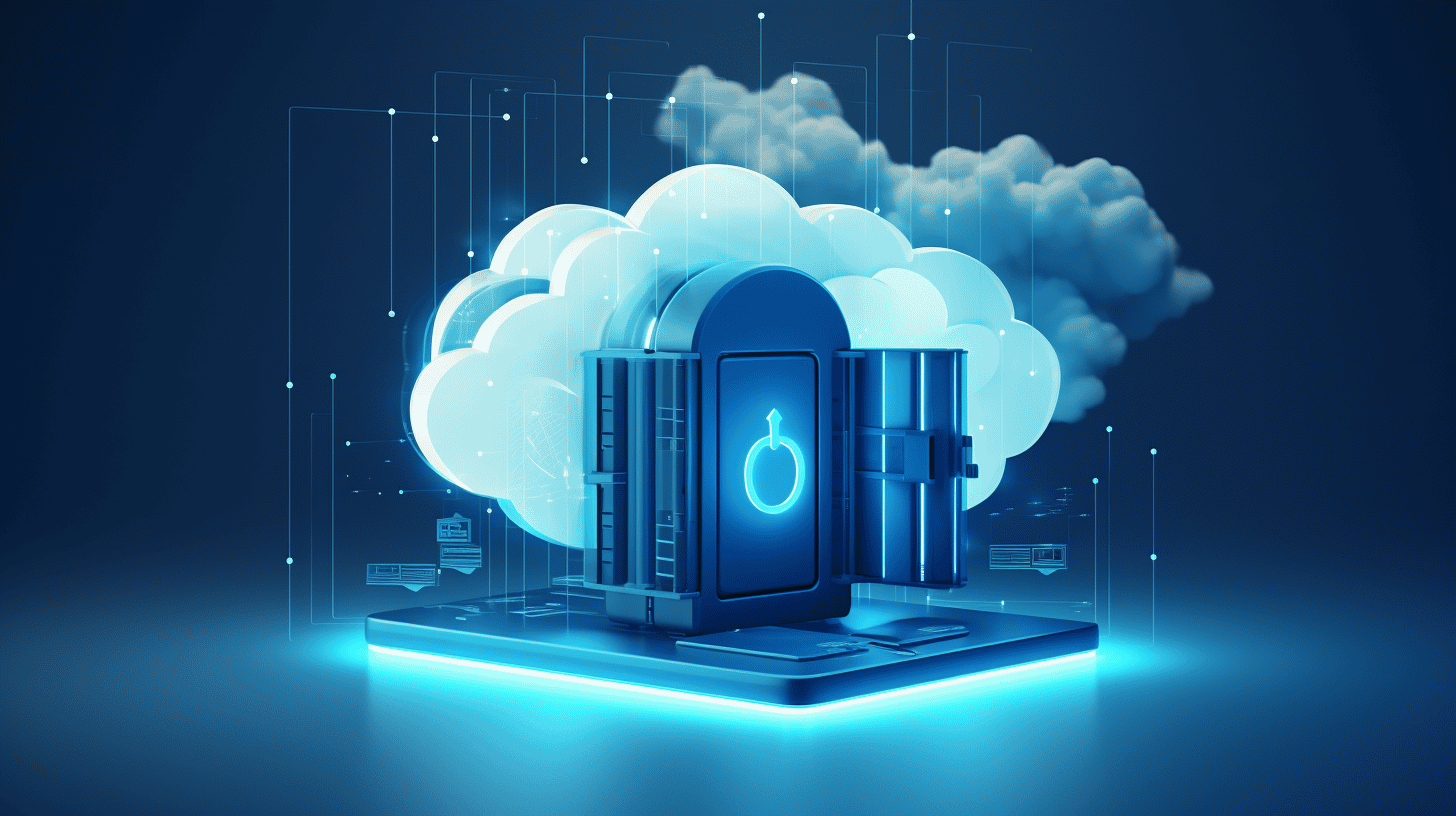在當今數位時代,網站在商業和個人企業中都發揮著至關重要的作用。最受歡迎的網站建立平台之一是 WordPress,它以用戶友好的介面和大量可自訂的主題和外掛程式而聞名。然而,它的流行也帶來了安全漏洞的風險,這些漏洞可能會危及您網站的完整性並洩露敏感資訊。
確保您的 WordPress 網站的安全至關重要。網站漏洞不僅會損害您的線上聲譽,還會導致法律後果和財務損失。在本文中,我們將探討增強 WordPress 網站安全性、防範網路威脅的重要技巧和最佳實務。
🔒💻💪 讓我們深入了解 WordPress 安全的世界,並為您提供保護您的網站免受潛在風險的知識。
WordPress 安全的重要性
不可否認,WordPress 是最受歡迎的網站創建平台之一。網路上超過 35% 的網站都是使用 WordPress 建立的,它已成為駭客和惡意個人的主要目標。 WordPress 網站數量龐大,容易受到各種安全威脅,凸顯了實施強大安全措施的重要性。
常見的 WordPress 安全漏洞
WordPress 生態系統中最普遍的安全漏洞之一是跨站點腳本 (XSS),它佔所有新漏洞的 53.3%。 XSS 攻擊是指攻擊者向使用者檢視的網頁注入惡意腳本,從而竊取敏感資訊甚至控制網站。
WordPress 中發現的其他常見安全漏洞包括:
- SQL 注入:攻擊者將惡意程式碼插入網站的資料庫查詢中,從而可能獲得對資料庫的未經授權的存取。
- 暴力攻擊:駭客使用自動化工具系統地猜測使用者名稱和密碼,試圖未經授權存取 WordPress 管理區域。
- 文件包含漏洞:攻擊者利用不安全的文件包含功能來存取敏感文件,這可能導致完全控制網站。
- 過時的主題和外掛:未能定期更新主題和外掛程式可能會導致網站容易受到已知的安全漏洞的攻擊。
為了保護您的 WordPress 網站免受這些漏洞的侵害,保持警惕並採取主動的安全措施至關重要。定期更新 WordPress 核心、主題和外掛程式、使用強大而獨特的密碼以及實施強大的安全性外掛程式可以大大增強您網站的安全性。
WordPress Hacks 統計訊息
WordPress 駭客攻擊的統計數據進一步強調了優先考慮網站安全的重要性:
- 2021 年,約有 4.3% 的 WordPress 網站遭遇安全漏洞,凸顯了攻擊的普遍性。
- 令人震驚的是,WordPress 網站佔所有被駭客入侵網站的數量的 43%,估計每年約有 470 萬個 WordPress 網站被駭客入侵。
- 駭客不斷改進他們的攻擊策略,因此網站所有者必須隨時了解最新的安全威脅和預防措施。
從這些令人震驚的統計數據來看,很明顯,忽略安全措施會導致您的 WordPress 網站容易受到攻擊,這可能會對您的企業或個人品牌造成不利影響。
要了解有關最大化 WordPress 安全性和實施基本安全提示的更多信息,請訪問 最大化WordPress安全性。投資強大的安全措施並保持更新將大大有助於保護您的網站免受潛在攻擊並確保您的線上業務持續成功。
增強 WordPress 安全性的一般技巧
介紹:
在當今數位時代,網站安全比以往任何時候都更加重要。 WordPress 作為最受歡迎的網站平台之一,是駭客的主要目標。但是,如果採取正確的安全措施,您可以保護您的 WordPress 網站免受潛在威脅並確保您的資料安全。本文將為您提供增強 WordPress 網站安全性的一般技巧。讓我們開始吧!
更新核心、主題和外掛:
保持 WordPress 核心、主題和外掛的更新對於維護網站安全至關重要。過時的軟體可能包含駭客可利用的漏洞。事實上,在遭到攻擊時,被駭客入侵的 WordPress 網站中,有 74% 使用的是過時的軟體[1]。為了確保您的網站安全,請確保:
- 定期檢查 WordPress 儀表板中的更新。
- 及時更新您的 WordPress 核心、主題和外掛。
- 從您的網站刪除所有未使用的主題和外掛程式。
強密碼和雙重認證:
使用強密碼是保護您的 WordPress 網站安全的基本面向。弱密碼會使駭客更容易未經授權存取您的網站。請考慮以下密碼安全做法:
- 使用大寫和小寫字母、數字和特殊字元的組合。
- 避免使用容易猜測的密碼,例如“123456”或“password”。
- 使用密碼管理器產生並儲存強密碼。
此外,啟用雙重認證可為您的 WordPress 登入流程增加額外的安全層。透過雙重驗證,使用者必須提供第二種驗證方式,例如發送到其行動裝置的唯一代碼,才能登入網站。
啟用防火牆和定期備份:
實施 Web 應用程式防火牆 (WAF) 可以顯著增強 WordPress 網站的安全性。 WAF 會過濾傳入流量並阻止惡意要求,保護您的網站免受各種類型的網路攻擊。一些熱門 WordPress 防火牆 外掛程式包括 Wordfence 和 Sucuri。
定期備份對於在發生安全漏洞或其他不可預見的情況時還原您網站的資料至關重要。透過定期備份您的網站,您可以快速恢復網站的資料並使其重新啟動並運行。您可以使用 UpdraftPlus 或 BackupBuddy 等外掛程式來自動執行備份程序。
結論:
保護您的 WordPress 網站是一項持續的工作,需要注意細節並採取主動措施。透過遵循上面提到的一般提示,您可以顯著提高網站的安全性。請記住,定期更新 WordPress 核心、主題和外掛是確保網站安全的首要方法[1]。保護您的網站免受潛在威脅並確保您的資料安全。保持警惕並優先考慮網站安全,以確保無憂的在線狀態。
⚡️ WordPress 安全藝術 – 自由工作者的 WordPress 安全技術的深入指南。 ⚡️
附加資訊:
- 74% 遭到駭客攻擊的 WordPress 網站在攻擊時使用了過時的軟體。
- 保護 WordPress 網站的安全性包括保持核心、主題和外掛程式為最新版本、使用強密碼以及啟用雙重認證。
- 實施 Web 應用程式防火牆 (WAF) 和定期備份也可以增強 WordPress 的安全性。
- 定期審查訪問日誌並監控異常活動可以幫助識別潛在的安全威脅。
- 定期更新 WordPress 核心、主題和外掛是確保網站安全的首要方法。
[1]:來源: 託管 WP 博客
選擇合適的網站寄存服務供應商
介紹:
在當今的數位世界中,選擇正確的網站託管服務提供者對於網站所有者來說至關重要。隨著網路威脅的不斷增加,選擇提供強大安全功能的安全託管服務提供者至關重要。此外,定期備份對於保護您網站的資料至關重要。本文將探討網站所有者在選擇網站寄存服務提供者時應考慮的各種安全功能,包括 DDoS 保護和定期備份。
安全特性:
在選擇網站寄存服務提供者時,評估他們提供的安全功能非常重要。以下是一些需要注意的關鍵安全功能:
- 防火牆:防火牆可作為您的網站和潛在威脅之間的屏障,過濾掉惡意流量。尋找具有可靠防火牆系統的託管服務供應商,以保護您的網站免受未經授權的存取和攻擊。
- DDoS 防護:分散式阻斷服務 (DDoS) 攻擊可能會嚴重破壞您的網站可用性。 DDoS 防護功能可有效緩解此類攻擊,確保您的網站保持在線並可供使用者存取。如果您的網站處理敏感的客戶資料或經歷大量流量,那麼 DDoS 保護就尤其重要。
- 定期備份:定期備份是網站安全的一個重要面向。在發生資料遺失、意外刪除或安全漏洞時,它們可以充當安全網。尋找提供自動和頻繁備份的託管服務供應商,最好可以選擇將備份儲存在遠端伺服器上以增加安全性。
DDoS 防護:
DDoS 攻擊會損害網站的效能和聲譽。因此,網站所有者必須選擇提供強大 DDoS 保護措施的網站託管服務提供者。這種保護可以包括:
- 流量監控:託管服務提供者監控您網站的所有傳入流量並分析是否有潛在的 DDoS 攻擊。
- 流量過濾:過濾掉可疑或惡意流量,確保只有合法流量到達您的網站。
- 資源擴展:如果發生 DDoS 攻擊,託管服務提供者可以擴大您的資源(例如頻寬和伺服器容量)以處理增加的流量並減輕攻擊。
透過選擇具有有效 DDoS 保護的網站寄存服務供應商,您可以保護您的網站並即使在 DDoS 攻擊期間也保持其可用性。
定期備份:
定期備份是任何網站安全策略不可或缺的一部分。在發生資料遺失、安全漏洞或技術問題時,它們提供後備選項。選擇網站寄存服務提供者時,請尋找提供以下服務的服務提供者:
- 自動備份:定期自動備份可省去您手動備份網站資料的麻煩。尋找提供每日、每週或每月自動備份的提供者。
- 異地存儲:將備份儲存在遠端伺服器上可確保即使主伺服器出現任何問題,您的網站資料也是安全的。
請記住,定期備份的便利性大大降低了永久性資料遺失的風險,並讓網站所有者安心。
總之,在選擇網站寄存服務供應商時,優先考慮防火牆、DDoS 保護和定期備份等安全功能至關重要。透過投資具有強大安全措施的知名託管服務提供商,網站所有者可以保護其寶貴的資料並維護安全的線上狀態。
🔗 WordPress 雲端託管:了解有關利用雲端託管實現高效 WordPress 管理的更多資訊。
高級 WordPress 安全措施
在當今的數位環境中,確保您的 WordPress 網站的安全至關重要。隨著網路威脅變得越來越複雜,採取先進的安全措施來保護您的線上狀態至關重要。本文將深入探討一些增強 WordPress 安全性最有效的方法,重點在於限制登入嘗試次數、使用 CAPTCHA 以及隱藏登入頁面。
限制登入嘗試
增強 WordPress 安全性的最簡單但最有效的方法之一是限制登入嘗試次數。預設情況下,WordPress 允許用戶進行無限制的登入嘗試,這會使您的網站容易受到暴力攻擊。這些攻擊涉及自動化工具,不斷猜測使用者名稱和密碼,直到找到正確的組合。
為了解決這個問題,限制登入嘗試次數可以顯著降低暴力攻擊成功的可能性。有各種可用的插件可讓您設定在一定時間內鎖定使用者之前的特定登入嘗試次數。用於此目的的一些流行插件包括:
- 登入鎖定:此外掛程式會記錄登入失敗的IP位址和時間戳,如果失敗次數超過一定閾值,則會暫時封鎖該IP。
- 限制重新載入登入嘗試次數:使用此插件,您可以定義特定時間段內允許的登入嘗試次數,如果有人超過該限制,他們將被鎖定。
透過限制登入嘗試次數,您可以為 WordPress 網站添加額外的保護層,使駭客更難獲得未經授權的存取。
使用 CAPTCHA
加強 WordPress 安全性的另一種有效方法是使用 CAPTCHA(完全自動化的公共圖靈測試,用於區分電腦和人類)。 CAPTCHA 是一種旨在區分人類使用者和自動機器人的測試。透過將 CAPTCHA 納入您的登入或註冊表單,您可以防止暴力攻擊和建立虛假帳戶。
要將 CAPTCHA 新增至您的 WordPress 網站,您可以使用各種外掛程式和服務,包括:
- Google reCAPTCHA:Google reCAPTCHA 是一種廣泛使用的 CAPTCHA 服務,它既提供傳統的基於文字的 CAPTCHA,也提供「我不是機器人」複選框。您可以使用以下外掛程式輕鬆將 Google reCAPTCHA 整合到您的 WordPress 網站中 驗證碼 或者 適用於聯絡表 7 的 reCAPTCHA v3.
- 驗證碼:hCaptcha 是另一種流行的 CAPTCHA 服務,它為 Google reCAPTCHA 提供了一種用戶友好且注重隱私的替代方案。插件如下 WordPress 的 hCaptcha 讓您輕鬆地將 hCaptcha 新增至您的登入和註冊表單。
透過將 CAPTCHA 新增至您的 WordPress 網站,您可以有效地防止自動機器人獲得未經授權的存取並保護您的使用者的敏感資訊。
隱藏登入頁面
增強 WordPress 安全性的另一種技術是隱藏登入頁面。預設情況下,WordPress 網站的登入頁面可透過「/wp-login.php」或「/wp-admin」URL 存取。這使得駭客更容易瞄準並發動暴力攻擊。
為了減輕這種風險,您可以透過將預設 URL 變更為更獨特、更難猜測的 URL 來隱藏登入頁面。這增加了一層額外的安全性,使駭客更難找到您的登入頁面。
有多個外掛程式可讓您自訂登入頁面 URL,例如 WPS 隱藏登入 和 重新命名 wp-login.php。這些外掛程式可讓您設定您選擇的自訂登入頁面 URL,從而有效地向潛在攻擊者隱藏預設登入頁面。
透過隱藏登入頁面,您可以降低網站登入功能的可見性,從而使駭客更難發動有針對性的攻擊。
總而言之,保護您的 WordPress 網站免受惡意攻擊至關重要。透過實施進階安全措施,例如限制登入嘗試、使用 CAPTCHA 和隱藏登入頁面,您可以大幅降低未經授權存取的風險並保護您寶貴的線上資產。
有關保護 WordPress 網站的詳細信息,請查看 加強WordPress的安全性.
了解最新的安全威脅
在當今世界,科技在我們的日常生活中發揮著至關重要的作用,了解最新的安全威脅至關重要。隨著網路攻擊的增多,了解風險並採取主動措施保護我們自己和我們的數位資產非常重要。
追蹤安全漏洞的一個寶貴資源是 WordPress 漏洞報告。這份綜合報告深入分析了影響 WordPress 網站的最新漏洞,提供了有價值的信息,幫助您領先一步防範潛在威脅。
以下是了解最新安全威脅非常重要的幾個主要原因:
1. 主動保護
透過了解最新的安全威脅,您可以採取主動措施來保護您的數位資產。了解現有的漏洞可讓您實施必要的安全措施並及時對系統套用修補程式或更新,從而最大限度地降低網路攻擊成功的風險。
2. 領先駭客
網路犯罪分子不斷發展其策略,尋找新的漏洞以供利用。透過了解最新的安全威脅,您可以跟上駭客使用的新興趨勢和策略。這些知識使您能夠採取必要的措施來加強防禦並預防潛在的攻擊。
3. 保護您的個人資訊
安全威脅不僅影響企業,也影響個人。個人資訊(例如財務資料和登入憑證)對網路犯罪分子來說非常有價值。透過保持了解訊息,您可以採取最佳做法來保護您的個人信息,降低成為身份盜竊或其他形式的在線欺詐的受害者的風險。
4. 保護您的網站和線上狀態
對於企業和網站所有者來說,了解安全威脅尤其重要。被入侵的網站不僅會損害您的網路聲譽,還會造成嚴重的財務影響。透過關注最新的安全漏洞,您可以識別網站基礎設施中的潛在弱點並立即採取措施解決它們。
5. 增強用戶信任
最後,了解安全威脅並採取主動措施保護您的數位資產有助於增強用戶信任。當用戶知道您優先考慮他們的安全和隱私時,他們更有可能放心地使用您的網站或線上服務。建立和維護數位領域的信任對於與用戶或客戶建立長期關係至關重要。
總而言之,在當今的數位環境中,了解最新的安全威脅至關重要。透過了解風險、採取主動措施保護自己和您的數位資產並領先駭客一步,您可以最大限度地減少網路安全威脅的影響。因此,請優先考慮隨時了解最新信息,並定期檢查以下資源: WordPress 漏洞報告 了解最新見解和最佳實務。您的安全和安心取決於它!
結論
總而言之,保護您的 WordPress 網站對於確保您的線上狀態的安全性和完整性至關重要。透過實施本文討論的基本提示和措施,您可以顯著增強 WordPress 網站的安全性並保護其免受潛在威脅。
請記住,定期更新您的核心、主題和外掛程式、使用強密碼並啟用雙重認證以及定期備份您的網站只是一些可以大大增強您網站安全性的一般做法。
選擇具有強大安全功能(例如 DDoS 保護和定期備份)的正確的網站託管服務提供者對於保護您的網站免受潛在攻擊也至關重要。
採取進階安全措施,例如限制登入嘗試、使用 CAPTCHA 防止垃圾郵件以及隱藏登入頁面,可以進一步加強您的網站以防止未經授權的存取。
了解可能影響 WordPress 網站的最新安全威脅和漏洞也同樣重要。透過保持警惕和積極主動,您可以領先潛在攻擊者一步。
請記住,您的網站安全不是一次性的任務,而是持續的努力。透過遵循這些提示並隨時了解最佳安全實踐,您可以保護您的 WordPress 網站並確保安全的數位存在。
🔒 使用 Managed-WP™ 保護您的 WordPress 網站,這是一個高級託管 WordPress 雲端託管平台,提供專家的 24/7/365 WordPress 支援、備份管理、修補程式管理和主動監控。簡化您的基礎設施並享受安全的線上體驗的自由。 探索Managed-WP™ 今天! 🔒
常見問題解答
- 增強 WordPress 網站安全性的一些基本技巧是什麼?
增強 WordPress 網站安全性的一些基本技巧包括:保持 WordPress 和外掛程式/主題為最新版本、使用強大而獨特的密碼、啟用雙重認證、定期備份您的網站、使用信譽良好的安全性外掛程式以及限制對重要文件的存取。
- 為什麼網站安全對 WordPress 很重要?
網站安全性對於 WordPress 來說非常重要,因為它可以保護您的網站免受駭客、惡意軟體和未經授權的存取。它有助於維護資料的完整性,保護使用者訊息,並確保您的網站順利運作。
- 如何保證我的 WordPress 網站的安全?
為了確保您的 WordPress 網站的安全,您應該定期將 WordPress、主題和插件更新到最新版本,使用安全的託管服務提供商,安裝和配置信譽良好的安全插件,實施強密碼,限制登入嘗試次數,並定期監控和掃描惡意軟體。
- WordPress 有哪些常見的安全漏洞?
WordPress 中的一些常見安全漏洞包括軟體版本過時、密碼薄弱、主題/外掛程式不安全、檔案權限不當以及缺乏定期備份。解決這些漏洞對於增強 WordPress 網站的安全性至關重要。
- 如果我的網站被駭客入侵了,我可以恢復嗎?
是的,如果您的網站遭到駭客攻擊,您可以透過立即採取行動來恢復。從乾淨的備份還原您的網站,更新所有軟體,更改所有密碼,掃描惡意軟體,刪除惡意文件,並實施額外的安全措施以防止未來的攻擊。



















